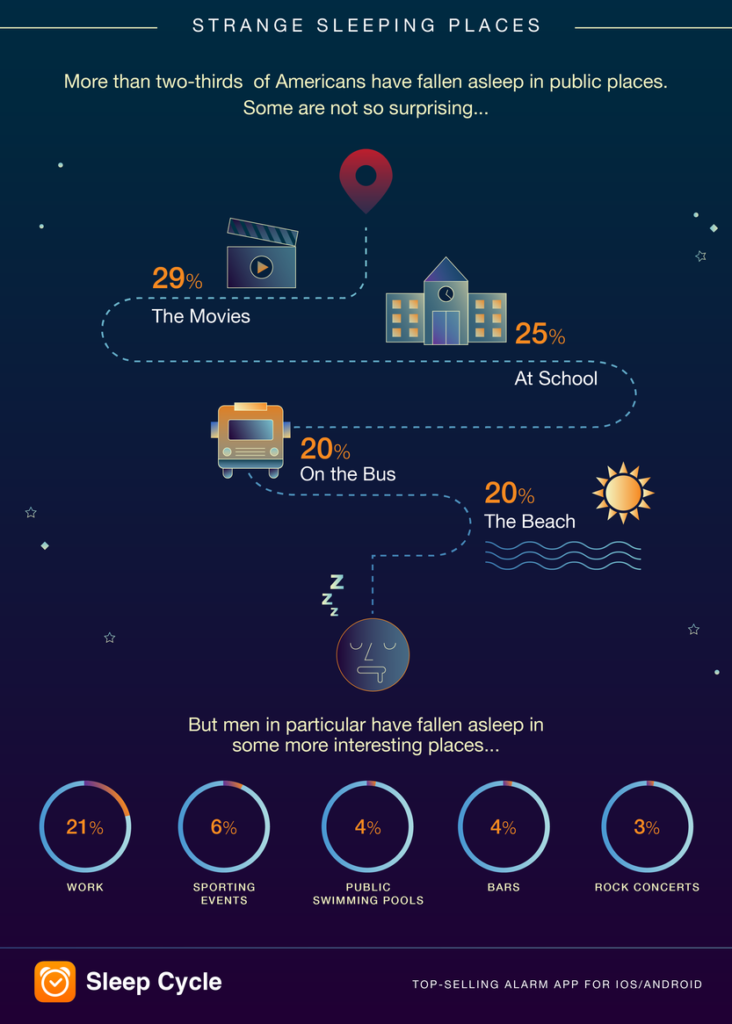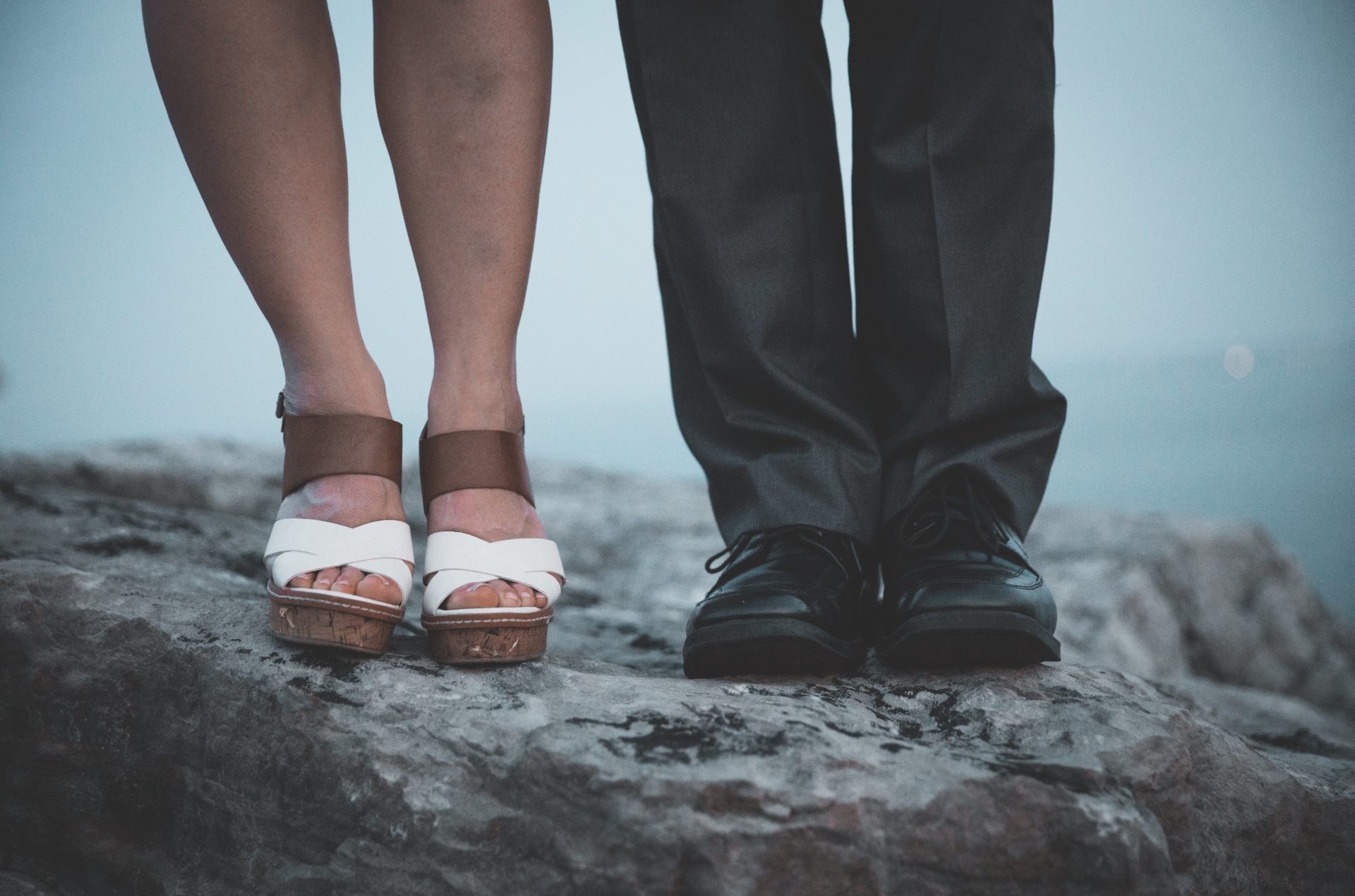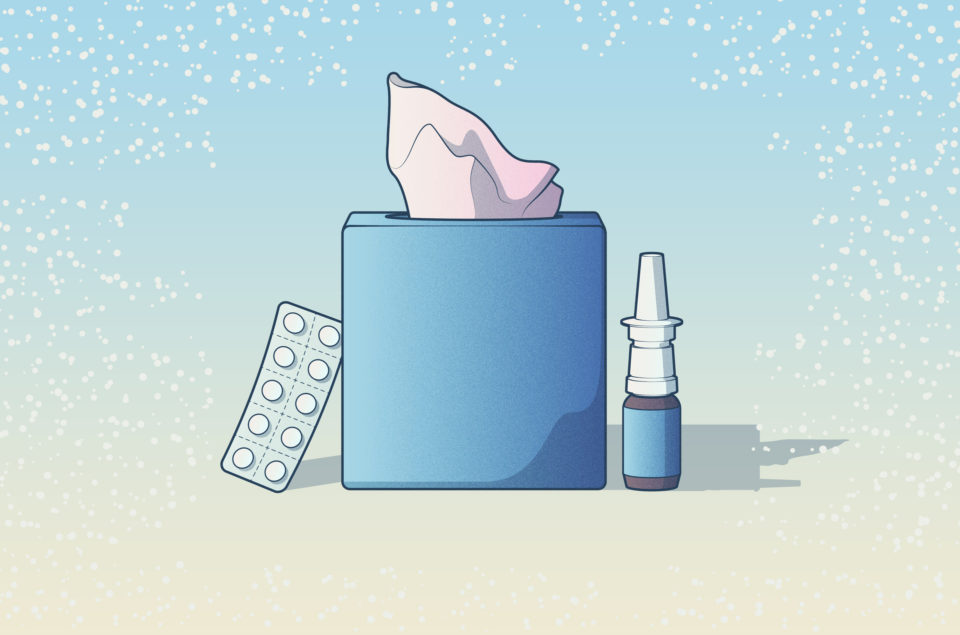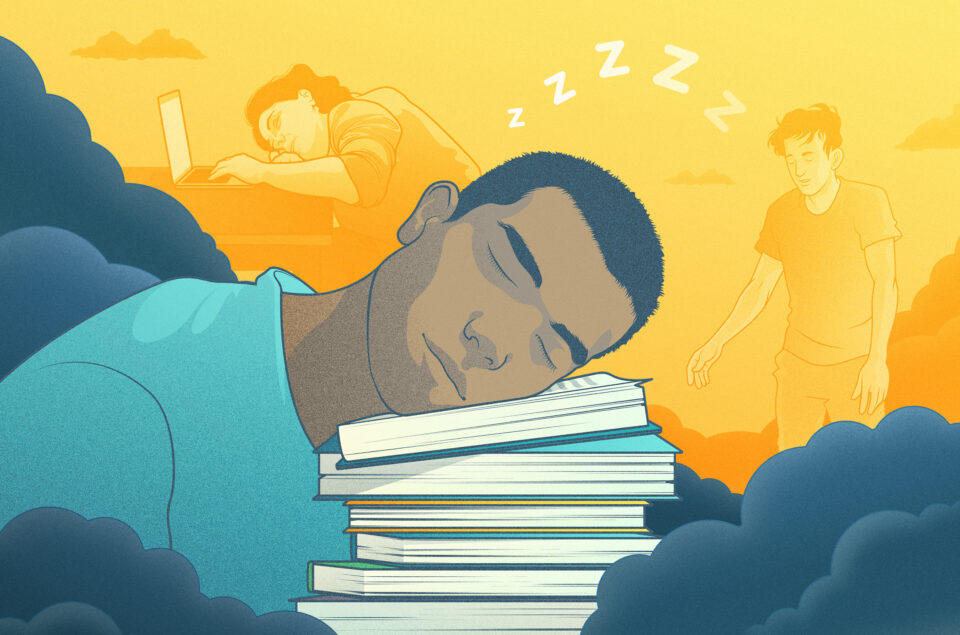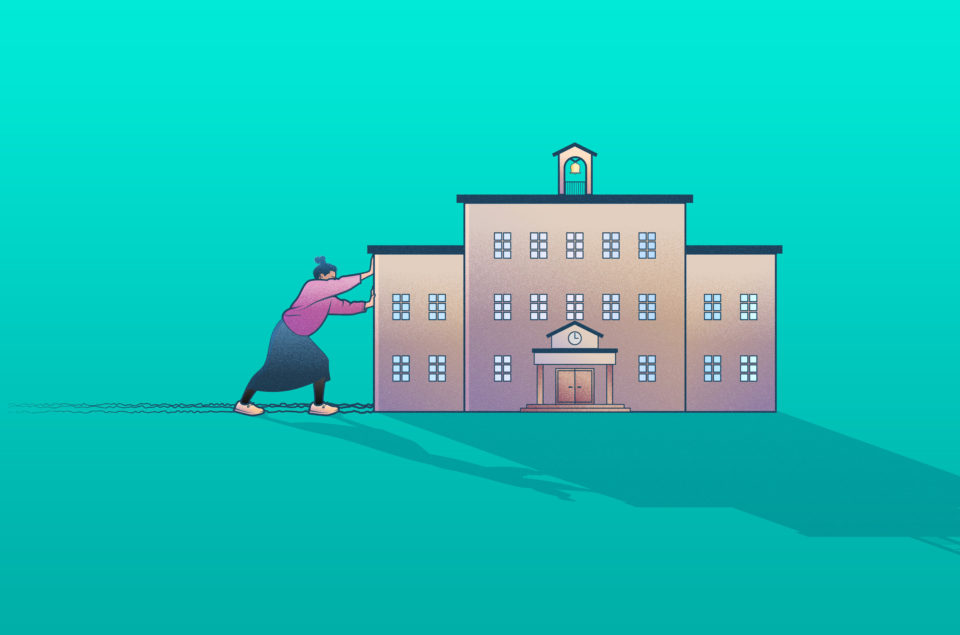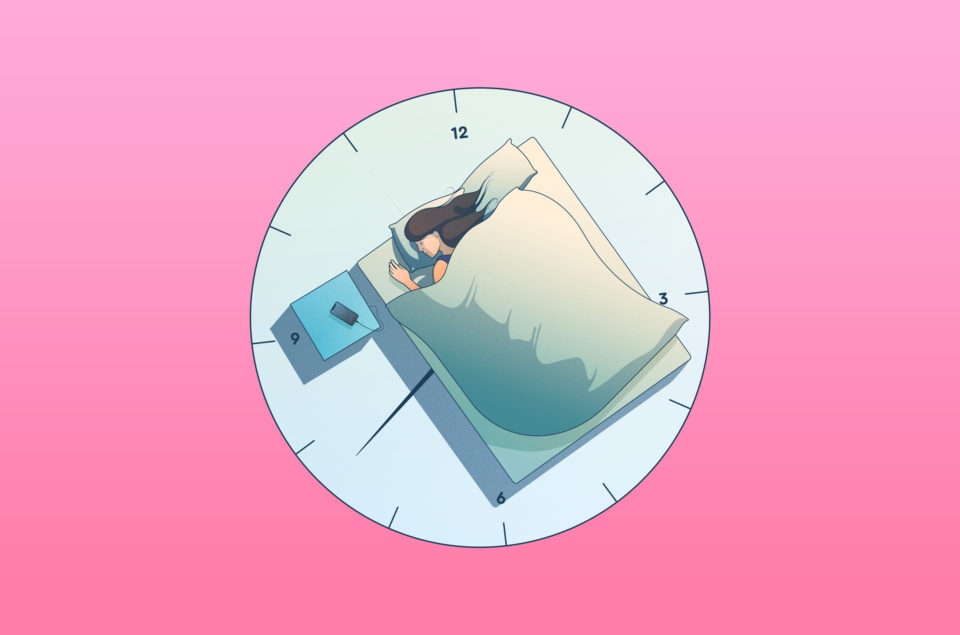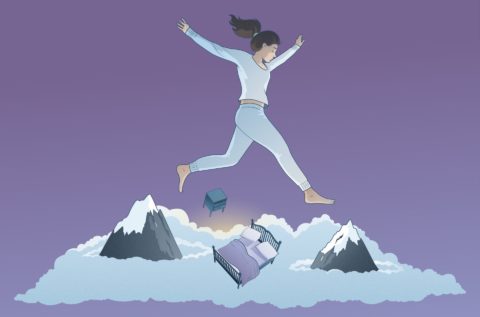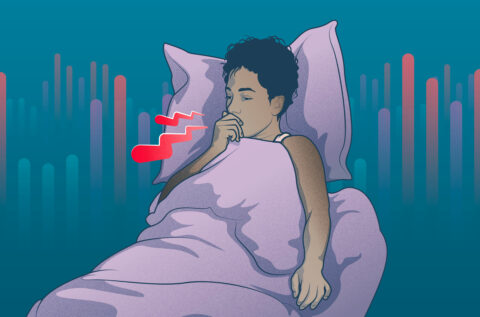A new Sleep Cycle survey reveals that Mars and Venus have different needs in the bedroom when it comes to getting a good night’s sleep. Women suffer more than men from sleep deprivation. The Sleep Cycle survey also reveals American women getting in more screen time before turning in for the night, while men do more snoring, sleepwalking and sleep eating.
The national survey of 1,004 U.S. adults was conducted online by Propeller Insights on behalf of Sleep Cycle in January 2018.
Women hit harder by sleep deprivation
The vast majority (93 percent) of Americans admit that getting a good night’s sleep affects their day. A full three-quarters (75 percent) feel better, more than half (52 percent) get more done, 39 percent are more patient—especially women (44 percent)—and 39 percent perform better at work. Women especially (40 percent) also feel that they look better after a good night’s sleep.
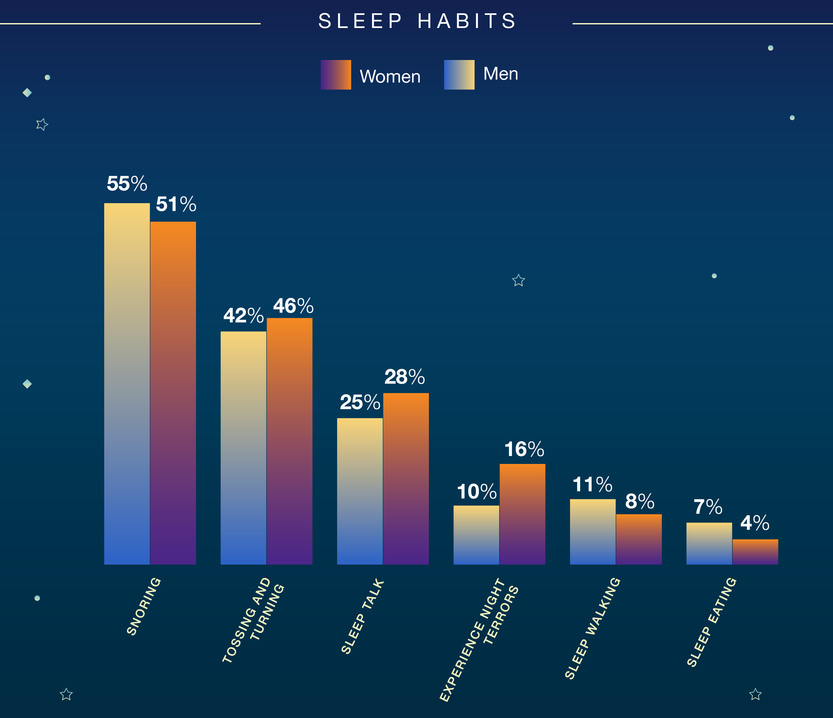
Sleep deprivation, on the other hand, has some disastrous consequences—particularly for women, who are crankier, puffier and generally feel worse:
How does a lack of sleep affect you? Women Men
- I’m crankier 67 percent 52 percent
- I look worse (puffy skin, dark circles) 48 percent 32 percent
- I feel physically ill 36 percent 26 percent
- I drink more coffee 29 percent 30 percent
- I can’t perform well at work 29 percent 27 percent
Women are also more likely to make poor food choices. More women say their food choices are affected by a bad night’s sleep (69 percent) than men (63 percent). Women are also more likely than men to confuse fatigue with hunger (42 percent versus 32 percent) and to eat junk food (29 percent versus 22 percent). Men, on the other hand, are more likely to eat less food (17 percent) than women (14 percent) or to eat healthier food (10 percent) than women (8 percent) to boost their energy.
Some Like It Cold
A full three-quarters (75 percent) of Americans—men and women alike—prefer a cool sleeping environment, and almost two-thirds (63 percent) are side-sleepers. Another third (33 percent) of Americans use some kind of app to help them sleep, including apps that play relaxing music (11 percent) and white noise (9 percent).
But men and women have some divergent sleep preferences. For example:
- Men prefer firm mattresses (42 percent) to soft mattresses (26 percent)
- Women like firm (34 percent) and soft mattresses (32 percent) almost equally
- Women (23 percent) are about twice as likely as men (12 percent) to enjoy sleeping with body pillows
- Women (10 percent) are more than three times as likely as men (3 percent) to enjoy sleeping with an electric blanket
- More women (24 percent) than men (17 percent) are cuddlers
In order to make waking up easier, 1 in 5 (21 percent) of Americans set their alarm earlier than they have to so they can snooze, 12 percent set their alarm to loud music, and 10 percent make their partners wake them up.
Bad Sleep Habits We Can’t Quit
The vast majority of Americans (74 percent) admit to having habits that negatively impact their sleep. Interestingly, men are slightly worse, with many minor bad habits. But women are significantly worse at the one big no-no: screen time before bed.
What habits negatively impact your sleep? Women Men
- Drinking caffeine before bed 40 percent 44 percent
- Eating before bed 30 percent 32 percent
- Using my phone/watching TV in bed 37 percent 22 percent
- Drinking alcohol before bed 16 percent 20 percent
- Eating chocolate before bed 13 percent 17 percent
Women are also more likely to let work stress interfere with their sleep. More men (15 percent) than women (12 percent) stay up late to finish work. And more women (21 percent) than men (17 percent) lie awake thinking about tomorrow’s to-do list.
“These results show that Americans struggle—one way or the other—with getting a good night’s sleep. And that women especially suffer the consequences of sleep deprivation,” said Carl Johan Hederoth, CEO of Sleep Cycle. “But the data also shows that too few Americans are taking advantage of apps like Sleep Cycle. In order to, wake up in the lightest phase of sleep so they wake up feeling refreshed and ready to take on the day.”
Walking After Midnight
American men do more snoring, sleepwalking and sleep eating than American women, while American women do more tossing and turning and sleep talking:
- More than half of American men (55 percent) and women (51 percent) snore
- 46 percent of women and 42 percent of men toss and turn
- More than a quarter of women (28 percent) and men (25 percent) sleep talk
- 60 percent more women (16 percent) than men (10 percent) have night terrors
- 1 in 10 men (11 percent) sleepwalk, as do 8 percent of women
- Men (7 percent) are almost twice as likely as women (4 percent) to sleep eat
More than two-thirds (70 percent) of Americans have fallen asleep in public places. Some are not so surprising—at the movies (29 percent), at school (25 percent), at the beach (20 percent), and on the bus (20 percent). But men, in particular, have fallen asleep in some more interesting places. Examples are: at work (21 percent), at sporting events (6 percent), at public swimming pools (4 percent), and at bars (4 percent)—3 percent even claim to have fallen asleep at a rock concert.
